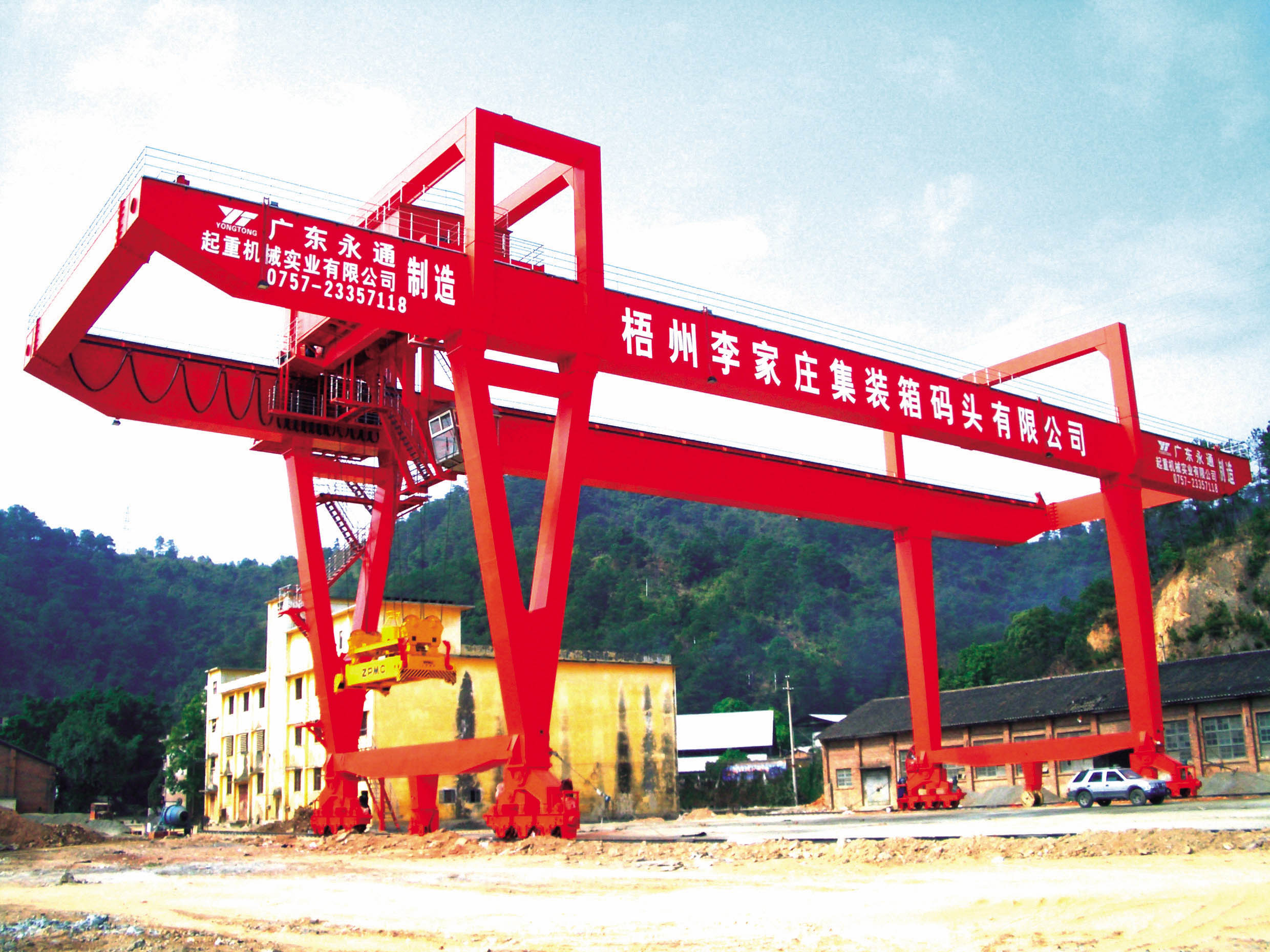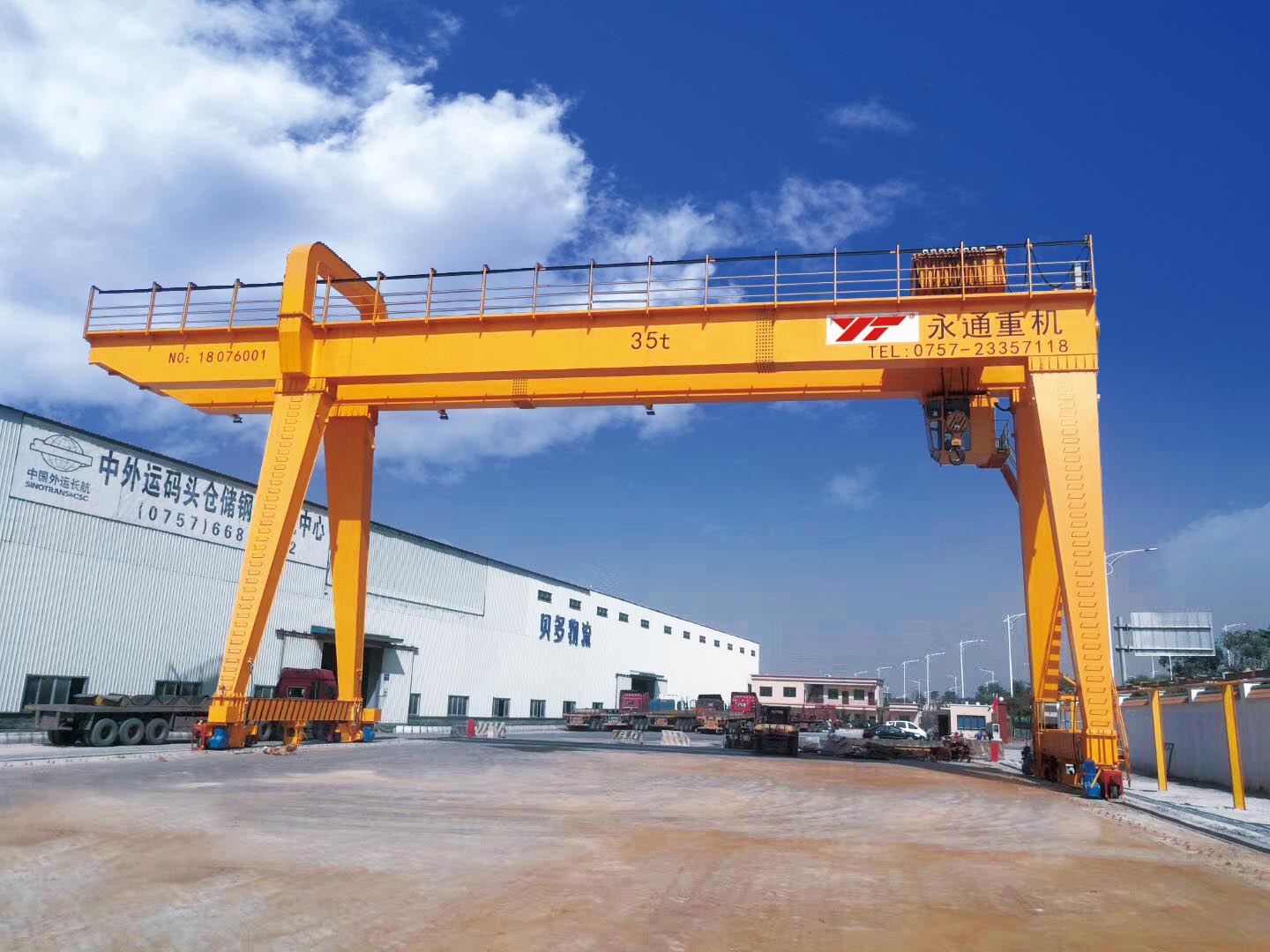

2023-02-28
Port gantry crane is a large mechanical equipment used for loading and unloading containers at the port. According to different structures and functions, port cranes can be divided into quayside container cranes, rubber-tyred container gantry cranes, rail-type container gantry cranes, portal cranes, etc. The automation system of the port crane can improve the efficiency and safety of the terminal.
 The types and characteristics of port portal cranes are as follows:
The types and characteristics of port portal cranes are as follows:
Quayside container cranes: large cranes used to load and unload containers between the dock and the ship. There are two types of cranes: single box and double box, and there are two types of gantry: H type and A type.
Rubber-tyred container gantry crane: a crane used to move and stack containers in the yard. The trolley runs on the tires and can turn, change tracks and shuttle.
Rail-type container gantry crane: a crane used to move and stack containers in the yard. The trolley runs on the rail and can realize automatic control.
Gantry crane: It is used to lift bulk cargo or other materials in the port or factory. There are two kinds of cranes, full swing and half swing, and can be equipped with a variety of lifting appliances.
The automation system of port gantry crane refers to the use of advanced technology and equipment to realize the intelligent, remote, efficient and safe operation and management of the crane. The automation system of port crane mainly includes the following aspects:
RFID radio frequency identification: The rapid identification and positioning of containers can be realized by installing radio frequency tags on the containers.
Far-infrared ray sensor: through installing the far-infrared ray sensor on the crane, accurate measurement and control of the container can be realized.
Position monitoring technology: realize real-time monitoring and dispatching of the crane by installing GPS or other positioning equipment on the crane.
Laser scanning imaging and positioning: high-precision imaging and positioning of containers can be achieved by installing a laser scanner on the crane.
Camera identification and monitoring: visual identification and monitoring of containers can be realized by installing cameras on the crane.
Network communication protocol: through the use of wireless network or wired network, realize rapid information exchange between various systems.
 The technical requirements of port portal crane are as follows:
The technical requirements of port portal crane are as follows:
The crane shall comply with the provisions of relevant standards such as GB/T 3811-2008 Code for Design of Cranes and GB/T 14406-2011 General Gantry Crane.
The structure, material, welding, coating, electrical and other aspects of the crane shall meet the requirements of the use environment and working conditions.
The safety device of the crane shall include limiter, brake, overload protector, windproof device, etc. to ensure the safe operation of the crane.
The crane shall be operated in the grinding room or by remote control. The operating system shall have good man-machine interface and fault diagnosis function.
The test method of port portal crane is as follows:
The crane test shall be carried out in accordance with the provisions of GB/T 3811-2008 Code for Design of Cranes and GB/T 14406-2011 General Gantry Crane and other relevant standards.
The crane test shall include factory test, post-installation test and type test.
Factory test shall be carried out in the manufacturing plant, mainly to check the quality and performance of crane structure, electrical, hydraulic and other components.
The post-installation test shall be conducted at the installation site, mainly to check the installation quality and operation performance of the crane.
The type test shall be carried out at the type test institution, mainly to check the reliability and effectiveness of the new technology, new structure, new material or new process of the crane.
Copyright @ Guangdong Yongtong Crane Machinery Co., Ltd. 粵ICP備2022051937號(hào)